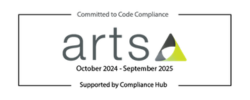DPC Summer Forum sessions provided ‘insightful, impactful and essential information’
“It was insightful and impactful, and the sessions certainly provided me with some essential information,” said Dr Kevin Fernando.
The Scottish GP Partner, with interests in diabetes and medical education, is referring to the CPD-accredited DPC Summer Forum, which concludes on Tuesday, July 21.
The free-to-access online sessions brought together key opinion leaders from the world of diabetes. Together, they took part in lively panel discussions about the main outcomes from the first virtual American Diabetes Association (ADA) Scientific Conference.
Dr Fernando took part in several of the sessions and chaired the first one, where all the participants discussed how they found attending the first virtual ADA.
“It was certainly strange not travelling to America and sitting in my study watching these major study findings being discussed, but completely necessary. As we all know, the pandemic has forced us all to approach situations very differently and I think going virtual was the next best alternative, rather than cancelling it all together,” Dr Fernando said.
But Dr Patrick Holmes said he missed the networking and the time difference was an issue for him.
“All these sessions are in Chicago which is more than six hours behind us, so it was difficult to be in tune with all the sessions. I missed the face to face interaction,” he said.
Over the course of the sessions many different topics were discussed, but it was the fourth session entitled ‘ADA Update and Prescribing in Practice’ that was, by far, the most popular webinar.
Dr Strain began the session by saying that “the numbers are climbing minute by minute, we’ve already hit a record based on previous numbers, and we’ve not even started yet”.
The main attraction was the participation of highly respected Professor John McMurray, who led the DAPA-HF trial.
The trial, based upon the drug dapagliflozin, could have huge potential for the treating of diabetes and those with heart failure because the findings reduced new-onset of diabetes cases by almost a third among adults with heart failure. This means that those with heart failure who were given the SGLT2 inhibitor during the trial had a 32 per cent lower risk of developing the condition over 18 months.
Professor McMurray, Professor of Medical Cardiology and Deputy Director of the Institute of Cardiovascular and Medical Sciences at the University of Glasgow, said: “I hate to say this, but we’ve stolen your drug. We’ve taken over your SGLT2 inhibitors as a new heart failure drug, although I do recognise that they were introduced as glucose lowering treatments and although you know them very well, most cardiologists had never heard about them until quite recently.”
After listening to the evidence, Dr Jim Moore, GP and GPSI Cardiology President, Primary Care Cardiovascular Society, said: “I don’t think I’ve heard such convincing evidence in heart failure around a new drug which is easy to use and has such a good side effect profile, ever!”
There were lively debates and radical research findings during the other sessions, with weekly insulin therapy for people living with type 2 diabetes dominating the first DPC Forum webinar.
Dr Fernando said: “The topline message was it seemed to be the equivalent to glargine in terms of hbA1c reduction and adverse effects. This is a potential game changer for type 2 diabetes, particularly in primary care.”
The next webinar focused on the SGLT2 inhibitor CV outcomes trial VERTIS CV (ertugliflozin).
Dr Derek Connolly, Consultant Interventional Cardiologist, opened the session by explaining why there have been so many cardiovascular trials carried out in recent years.
“Cardiovascular disease is the number one killer in the world and the latest data shows it will be for the next 25 years and we know that diabetes is absolutely one of the biggest risk factors,” he said.
The third DPC Forum webinar looked at GLP1s, their benefits and whether they should be prescribed more.
Speaking ahead of the session, Specialist Diabetes and Endocrine Pharmacist Victoria Ruszala, said: “GLP-1s can help people who struggle to control their type 2 diabetes using insulin achieve better blood sugar levels. Other positive benefits include better glycaemic control and weight loss.”
However, when NICE originally reviewed the drugs, it put a strict set of criteria against them and made them third line therapy, but Victoria said things are changing.
“Despite offering very good benefits and potentially being able to change someone’s life, our hands are tied as to how we can use them. The tide is turning, but it’s still a fight,” she added.
The DPC Summer Forum was made possible because of a hands off grant provided by AstraZeneca.
The fifth and final session entitled ‘Hidden Burden of Hyperkalemia’ took place on Tuesday, July 21 from 7pm.



)
)
)
)

)
)
.jpg/fit-in/1280x9999/filters:no_upscale())
.png/fit-in/1280x9999/filters:no_upscale())
)
)
)
